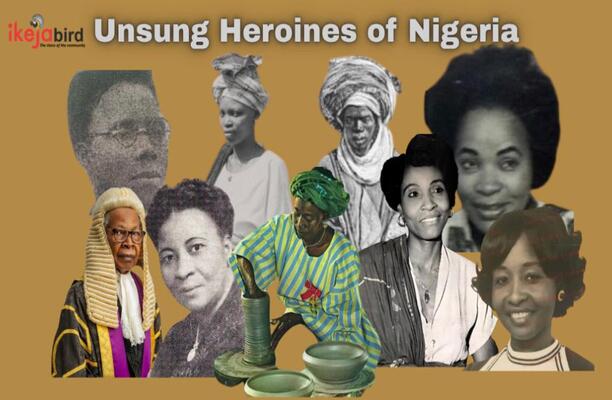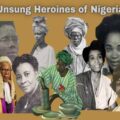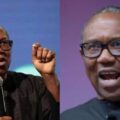(Part 2 of 3)
By Sunkanmi Adewunmi
If Part One left you inspired, you’re in for more. We’re back with another round of remarkable Nigerian women whose names may not ring out in history books but whose legacies shaped our nation in powerful, lasting ways. These are the visionaries, fighters, creators, and trailblazers who proved that impact doesn’t always need a spotlight.
Judge Victoria Ayodele Uzoamaka Onejeme
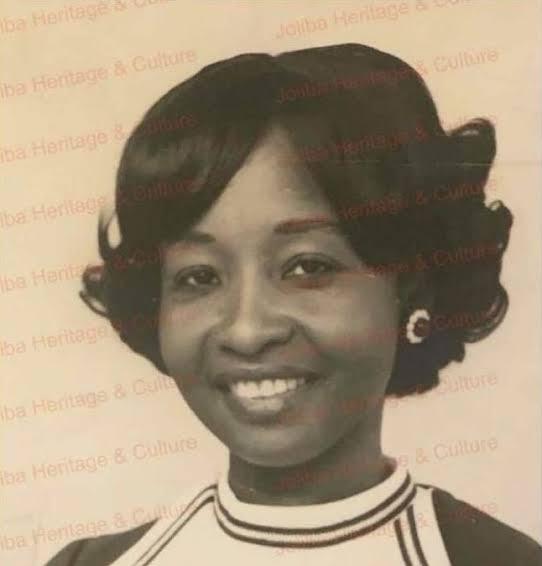
Victoria Onejeme (born 1930) broke barriers in Nigeria’s judiciary. Called to the Nigerian Bar in 1965, she climbed the legal ranks and in 1976 became Nigeria’s first female Attorney-General (of Anambra State). This historic appointment placed her among the highest legal officials in the country, at a time when almost no women held such roles. Her accomplishments continued: in 1984 she was appointed the first female Judge of the Federal High Court in Abuja. Over the years she earned a reputation for sound legal judgment and integrity.
Despite these “firsts,” Justice Onejeme’s name is seldom recalled outside law circles or those who study women in history. She had no political fanfare or mass media profile; her work was in courtrooms and legal counsel offices. Nonetheless, her career was inspirational. She quietly laid the groundwork for gender equality in Nigeria’s justice system. Anecdotes from colleagues highlight her mentorship to young lawyers and her dedication to fair rulings. In Archivi’s words, “Victoria Onejeme built a remarkable legal career defined by dedication to justice,” and helped shape Nigeria’s judicial framework.
The Unconventional Adunni Oluwole
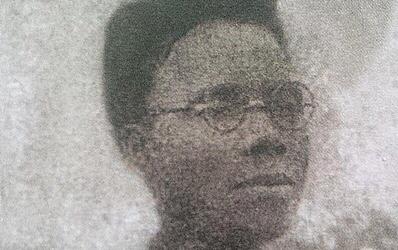
Adunni Oluwole (1905–1957) was unlike any Nigerian politician of her time. An itinerant preacher-turned-activist, she fearlessly spoke truth to power before Nigeria’s independence. Born in Ibadan but raised in Lagos, she was known for fiery sermons. From the pulpit she wrote and staged plays, in fact, she founded the first female-owned professional theater in Western Nigeria during the 1930s.
Oluwole’s activism turned political in 1945 when, moved by a general workers’ strike, she sold everything she had to feed striking laborers and publicly supported their demands. In 1954 she launched the Nigerian Commoners’ Liberal Party, winning a legislative seat in Ikirun shortly after. Uniquely, she opposed hurried independence in 1956, arguing that emerging African leaders had become “internal colonialists” and that Nigerians should choose gradual self-rule. This stance expressed under the banner “Egbe Koyinbo Mailo” (The White Man Must Not Go) was widely controversial, but later commentators credit her with astute foresight into post-independence problems.
Adunni’s contributions are often overlooked today. In part this is because her anti‑independence message conflicted with Nigeria’s nationalist narrative, and because she operated largely outside elite circles. But her life is rich with inspiration: she challenged male leaders in Olubadan’s court, survived banishment for her views, and never stopped championing workers and women’s political rights. As Vanguard News remembered, “She was our own Nostradamus” who predicted troubles to come.
Margaret Ekpo’s Fight for Women’s Rights
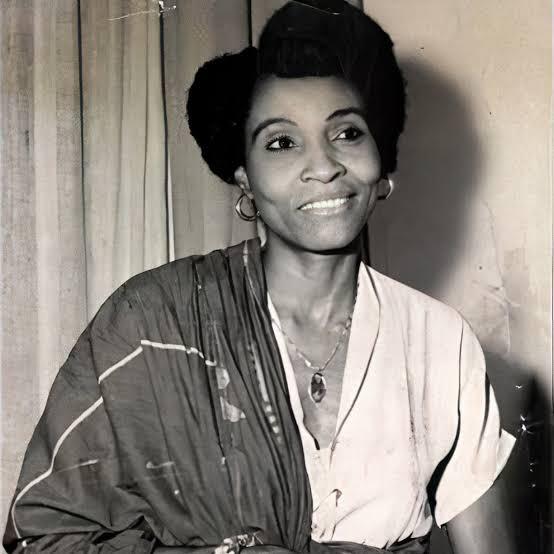
Chief Margaret Ekpo (1914–2006) was already known as a powerful figure when Nigeria gained independence, but even she is sometimes overlooked in popular histories today. A Creole-Ibibio woman from Creek Town in the southeast, she settled in Aba after marriage and became a market leader and political dynamo. Ekpo organized Aba’s women into a union (the Market Women Association) in the late 1940s, uniting women across ethnic lines to demand economic and political rights. By the early 1950s, women in Aba outnumbered men voters in local elections, a testament to the grassroots power she helped build.
In 1953, the National Council of Nigeria and the Cameroons (NCNC) nominated her to the Eastern House of Chiefs; in 1961 she won a seat in the Eastern Regional House of Assembly. In office, she fought for women’s issues, from market reforms to rural roads. Notably, she campaigned (with Funmilayo Ransome-Kuti) against the killing of mineworkers in Enugu in 1949 showing solidarity with broader Nigerian causes. After the First Republic, she largely retired, but in 2001 Calabar’s airport was named in her honor.
Why is Margaret Ekpo included as “unsung”? True, she is one of Nigeria’s recognized heroines – a statue in Aba and an airport carry her name – but her contributions are still overshadowed by male independence figures. Many young people today cannot name her, despite her role as one of Nigeria’s first female politicians and feminist activists. Yet her voice was thunderous in her time. She once declared that when women are organized, they are an “unstoppable army” in politics. Her life teaches that women’s rights and economic empowerment go hand in hand.
As incredible as these stories are, they’re just a glimpse into the powerful legacy Nigerian women have built, often behind the scenes, yet always at the heart of change. There are many more voices to uncover, more paths paved by women whose names you might not know yet, but whose impact still echoes today. In Part Three, we’ll continue this journey, spotlighting more unsung heroines who prove that every woman’s contribution matters. Keep reading, history is still unfolding, and you’re part of it.

